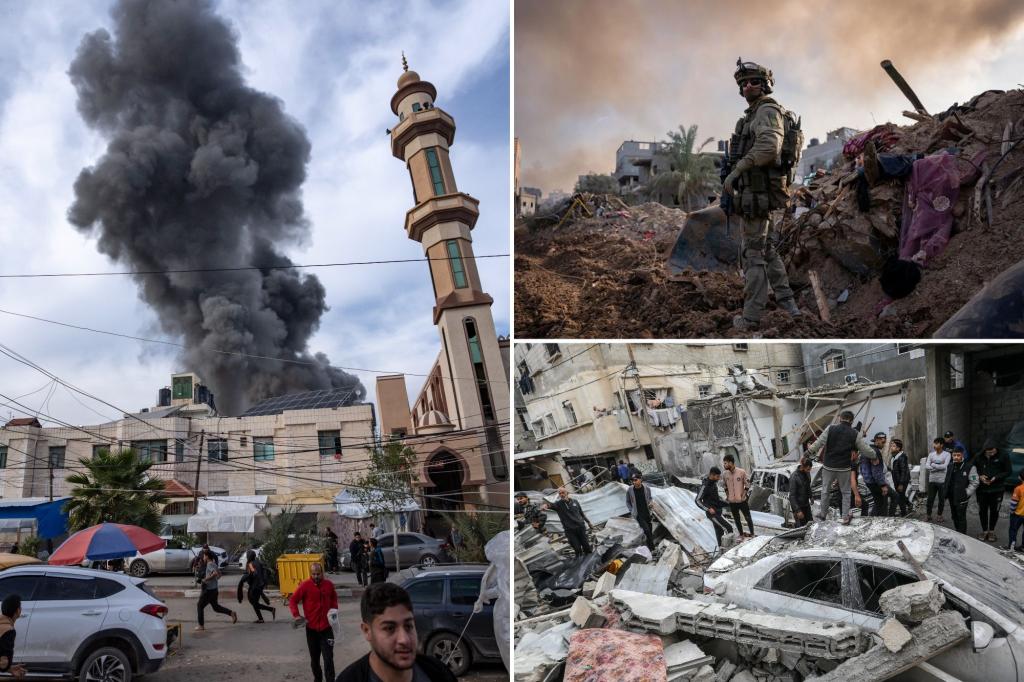The World Health Organization said on Thursday that northern Gaza had been left without a functioning hospital due to a lack of fuel, staff and supplies.
Only nine of 36 health facilities are partially functional across Gaza, according to the WHO. All these facilities are concentrated in the south of the enclave.
“There are actually no functioning hospitals left in the north,” Richard Peeperkorn, the WHO representative in Gaza, told reporters via video link from Jerusalem.
Palestinians inspect damage caused by an Israeli airstrike on a family home in Rafah on Dec. 20, 2023. ZUMAPRESS.com Smoke rises following Israeli bombardment near the Gaza Strip south of Rafah on Dec. 20, 2023. AP
“Al-Ahli (Hospital) was the last but it is now functioning minimally: still treating patients but not accepting new ones.”
Describing it as a “hospital shell”, Peeperkorn said Al-Ahli resembled a hospice that provided very limited care. About 10 staff, all junior doctors and nurses, continue to provide basic first aid, pain management and wound care with meager resources, he said.
“Until two days ago, it was the only hospital where injured people could undergo surgery in northern Gaza and it was overwhelmed with patients who needed emergency treatment,” he said.
An Israeli soldier operates in the Gaza Strip amid the ongoing conflict between Israel and the Palestinian Islamist group Hamas on Dec. 21, 2023. via REUTERS
“There are no more operating theaters due to lack of fuel, power, medical supplies and health workers, including surgeons and other specialists.”
The bodies of the victims of the recent Israeli attacks were placed in the hospital yard because they could not be buried safely and with dignity, he said.
Start your day with everything you need to know
Morning Report delivers the latest news, videos, photos and more.
Besides Al-Ahli Hospital, northern Gaza has only three other minimally functioning health facilities: Al-Shifa, Al Awda and Al Sahaba hospitals, which Peeperkorn says shelter thousands of displaced people.
Some patients at Al-Ahli have been waiting for surgery for weeks or if they have been operated on, they are at risk of infection after surgery because of the lack of antibiotics and other drugs, he added.
“All these patients cannot move and need to be moved immediately to have a chance to survive,” he said, repeating the WHO’s call for a humanitarian ceasefire.
“This is needed now to strengthen and replenish the remaining health facilities, to deliver the medical services needed by the thousands of injured people and those in need of other essential care, and, above all, to stop the bloodshed and death.”
Categories: Trending
Source: thtrangdai.edu.vn/en/



